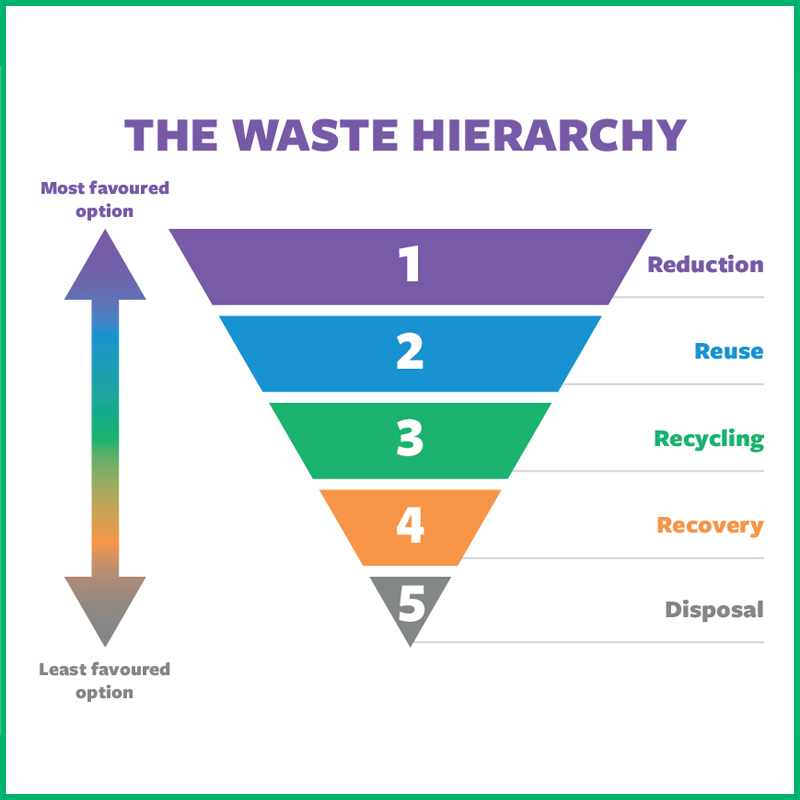Waste Framework Directive (WFD) 2018
The new WFD (Directive (EU) 2018/851 of the European Parliament, amending Directive 2008/98/EC on waste) was approved by the EU in July 2018 and has been transposed into Irish Law by 5 July 2020. It requires EU Member States to improve their waste management systems, to improve the efficiency of resource use, and to ensure that waste is valued as a resource.
Key focus of the WFD includes the following.
- Measures to prevent waste generation.
- Minimum operating requirements for EPR schemes, to include fee modulation and the concept of necessary costs.
- The management of municipal waste.
- Incentives for the application of the waste hierarchy.
- Measures to encourage the development, production, marketing and use of products suitable for multiple use that contain recycled materials, suitable for re-use and recycling.
- Measures to promote the re-use of products constituting the main sources of critical raw materials to prevent those materials from becoming waste.
- The promotion of sustainability in production and consumption in Member States, including communication and educational initiatives as well as measures to promote prevention and reduction of food waste.
- Member States’ obligation to set up separate collection for paper, metal, plastic, and glass waste.

Eco Fee Modulation
The 2018 recast of EU waste legislation also proposed that the financial contributions (or fees) that producers pay into Extended Producer Responsibility (EPR) schemes (such as Repak), should be eco-modulated. In other words, the fees paid towards management of packaging waste should be modulated according to the environmental performance of packaging – rewarding eco-friendly packaging with lower fees and penalising others with higher charges. This means that recyclable packaging will incur lower fees in future, and non-recyclable, composite packaging and over-packaging will be heavily penalised. Implementation of the new modulated fee structure for Repak Members has been in effect since 2021.
